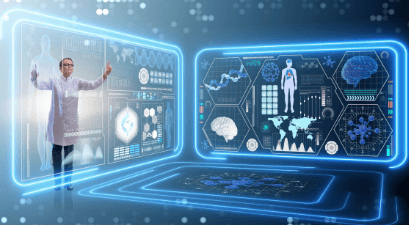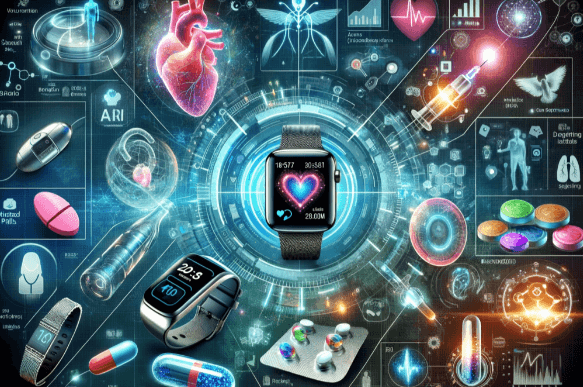Exploring the World of AI-Driven Diagnostics

AI-driven diagnostics are transforming healthcare through the integration of advanced machine learning algorithms that enhance detection accuracy and speed. These systems analyze complex datasets in real time, enabling early intervention and personalized treatment strategies. As technological capabilities expand, questions arise regarding ethical considerations, data privacy, and clinical reliability. Understanding the current landscape and future potential of these innovations is essential for navigating their impact on medical practice and patient outcomes.
The Evolution of Diagnostic Technologies With AI
How have diagnostic technologies evolved with the integration of artificial intelligence? AI enhances precision and speed but raises concerns about data privacy and ethical considerations.
Balancing innovation with individual rights remains critical, ensuring that technological advancements do not compromise patient confidentiality or ethical standards.
This approach fosters a responsible path toward autonomous, transparent diagnostic systems that empower healthcare freedom.
Key Innovations Powering AI-Driven Diagnostics
Advancements in AI-driven diagnostics are underpinned by several key innovations that have significantly enhanced analytical capabilities and accuracy. Machine learning algorithms optimize data analytics processes, enabling pattern recognition and predictive modeling at unprecedented scales.
These innovations facilitate real-time insights, empowering healthcare professionals with precise, data-driven tools that expand diagnostic freedom and precision across diverse clinical contexts.
Benefits and Challenges of Implementing AI in Healthcare
The integration of AI into healthcare systems offers substantial benefits, including improved diagnostic accuracy, personalized treatment plans, and enhanced operational efficiency.
However, ethical concerns and data privacy issues pose significant challenges. Ensuring robust data security and addressing moral implications are critical for responsible AI adoption, balancing technological advancement with respect for individual rights and societal values.
See also: Exploring the Future of Edge Computing
Future Perspectives and Emerging Trends in AI Diagnostics
Emerging trends in AI diagnostics indicate a trajectory toward increased integration of multimodal data sources, real-time analysis, and adaptive learning algorithms.
These advancements support personalized medicine, enabling tailored treatments.
However, ethical considerations remain critical, emphasizing transparency, data privacy, and equitable access, ensuring AI-driven diagnostics promote both innovation and responsible healthcare practices.
Conclusion
As AI-driven diagnostics continue to evolve, they act as a compass guiding healthcare toward greater precision and efficiency. While technological advancements illuminate a promising future, addressing ethical and privacy concerns remains essential to prevent potential pitfalls. Balancing innovation with responsibility ensures these tools serve as reliable navigators in medicine’s complex landscape, transforming data into a beacon of hope—brightening the path toward more equitable and effective patient care.





